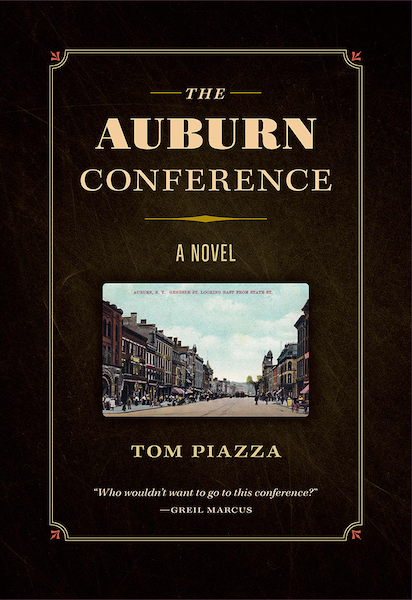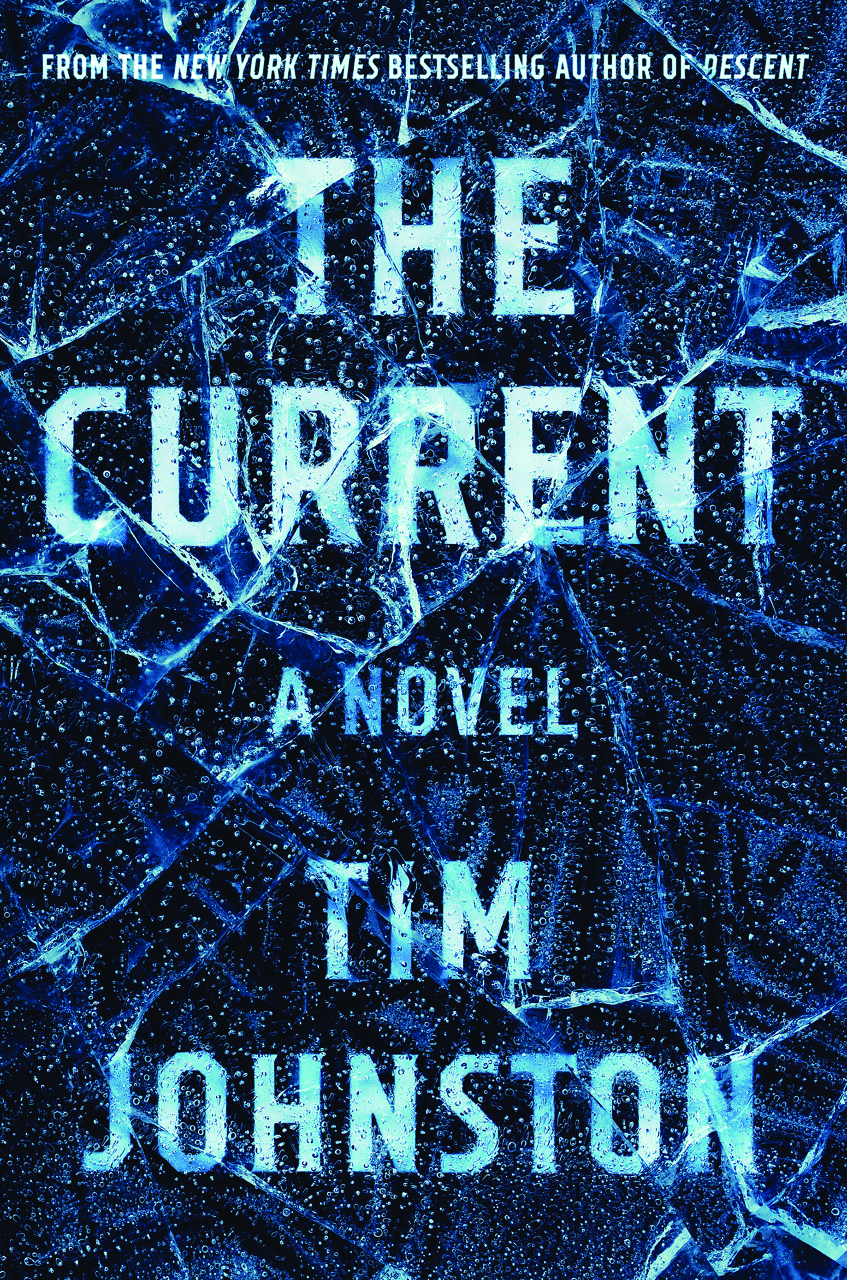Of Love and Terror
Tim Johnston brings depth and lyricism to the thriller genre with Descent
How does one survive the unthinkable? How does a parent live without knowing what’s become of a missing child? How long can a person go on without abandoning hope? These are the questions that frame Descent, Tim Johnston’s new thriller, in which a young woman just about to begin college on a track scholarship goes out for a morning run and never returns, leaving her family in a tailspin of grief. Applying the lyricism and depth of literary fiction to the conventions of the thriller genre, the Memphis novelist has crafted an elegant, engrossing page-turner not easily put down, nor forgotten.
 Descent opens with the Courtland family’s trip to Colorado. Eighteen-year-old Caitlin has chosen their destination; she wants to train in the thin Rocky Mountain air. Early on the first morning, she goes out for a run, trailed by her fifteen-year-old brother, Sean, on a rented mountain bike. When Sean is struck by a truck and left with a badly broken leg, Caitlin, against her better judgment, accepts a ride from the driver to find help. Hours later, the Courtlands get a call from the local sheriff. Sean has turned up at the hospital; Caitlin has disappeared without a trace.
Descent opens with the Courtland family’s trip to Colorado. Eighteen-year-old Caitlin has chosen their destination; she wants to train in the thin Rocky Mountain air. Early on the first morning, she goes out for a run, trailed by her fifteen-year-old brother, Sean, on a rented mountain bike. When Sean is struck by a truck and left with a badly broken leg, Caitlin, against her better judgment, accepts a ride from the driver to find help. Hours later, the Courtlands get a call from the local sheriff. Sean has turned up at the hospital; Caitlin has disappeared without a trace.
The vanishing of a beautiful young woman is a trope as old as the novel itself, and for good reason: fewer fears cut deeper than the idea of an innocent beauty snatched away to be defiled and, eventually, murdered. But this painstakingly crafted novel transcends convention in its patient, careful attention to the psychological toll of Caitlin’s abduction on her family before returning in earnest to the search and rescue plot. Any parent who has lost track of a child for so much as five minutes in a park or department store can easily grasp Grant and Angela Courtland’s abject despair as days and weeks and months pass with no sign of their daughter and no more evidence to go on than Sean’s memory of a single detail: a pair of yellow-tinted aviator glasses.
Descent marks Tim Johnston’s debut as a writer of novels for adult readers, but he is no literary neophyte. Never Green, his debut, was a well-received YA novel, and his most recent book, the story collection Irish Girl, won the Katherine Ann Porter Prize and was famously championed by celebrated essayist David Sedaris on his 2010 lecture tour. That collection contains “Up There,” a short story which germinated the seed of Descent. Johnston’s increasingly mature, lyrical style is on full display in the full-length version of the story, as he capably bridges the gap between pulse-quickening suspense and literary character study.
 The beauty and clarity of Johnston’s prose is most evident in his evocation of the Rocky Mountains, at once majestic and deceptively forbidding. “They’d come to the Rockies thinking it was a place like any other they might have chosen: chronicled, mapped, finite. A fully known American somewhere,” Johnston writes. “Now Grant understood that, like the desert, like the ocean, the mountains were a vast and pitiless nowhere. Who would bring his family—his children—to such a place?” Grant’s observations of the mountain landscape, along with a series of chilling scenes revealing Caitlin’s fate in captivity, enrich the sense of both spiritual and physical isolation experienced by each of the Courtlands as time stretches on and hope of finding Caitlin wavers.
The beauty and clarity of Johnston’s prose is most evident in his evocation of the Rocky Mountains, at once majestic and deceptively forbidding. “They’d come to the Rockies thinking it was a place like any other they might have chosen: chronicled, mapped, finite. A fully known American somewhere,” Johnston writes. “Now Grant understood that, like the desert, like the ocean, the mountains were a vast and pitiless nowhere. Who would bring his family—his children—to such a place?” Grant’s observations of the mountain landscape, along with a series of chilling scenes revealing Caitlin’s fate in captivity, enrich the sense of both spiritual and physical isolation experienced by each of the Courtlands as time stretches on and hope of finding Caitlin wavers.
The specter of Caitlin’s predicament looms over Descent through brief, eerie, italicized chapters that subtly disclose the conditions of her captivity and the identity of her abductor. “Once, she got down on hands and knees and looked closely,” Johnston writes. “Felt with fingertips. Faint small scarrings in the wood. Hatch marks. Months and months of calendaring, incompletely sanded away. It sickened her and taught her: Don’t count. Don’t mark. Don’t believe in a foreseeable end with its nothing to do but wait, and wait.”
At times, the depth and lyricism of the prose in Descent feel at odds with the suspenseful plot. Johnston guides each of the Courtlands down paths that may appear at first to be tangential distractions. A patient, thorough reading of Descent, however, will be amply rewarded. There are no red herrings in Johnston’s carefully crafted plot, which meticulously accounts for the agonizing years after Caitlin’s abduction before accelerating into a breathtaking pace of revelation and action that makes Descent difficult to put down.
Descent necessarily presents a dark view of fate that’s reminiscent of Cormac McCarthy, whose influence seems strong here. “People don’t want to give dumb luck any credit for the turns in their lives, good or bad,” explains Caitlin’s mysterious captor at a particularly fraught moment in the narrative. “People want to believe in some plan or design, when all around them is the evidence that the whole world is nothing but dumb luck. Going back to the first cells in the ocean. Going back to the stars.” The peril of such a confrontation with the world’s essential senselessness permeates the novel, making it as memorable for its unflinching gaze into the abyss as for its taut pacing and its heart-stopping denouement.
[This review appeared originally on January 14, 2015. It has been updated to include new event information.]

Ed Tarkington holds a B.A. from Furman University, an M.A. from the University of Virginia, and a Ph.D. from the creative-writing program at Florida State University. His debut novel, Only Love Can Break Your Heart, is forthcoming from Algonquin Books. He lives in Nashville.


